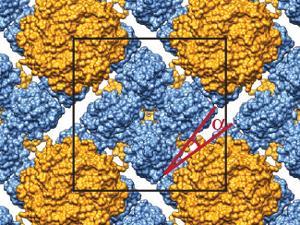Self-assembling protein tiles show rare property of thickening by the same amount as they are stretched by

Protein crystals stretch knowledge of exotic materials was first published by Chemistry World.
Self-assembling protein tiles show rare property of thickening by the same amount as they are stretched by

Protein crystals stretch knowledge of exotic materials was first published by Chemistry World.
No comments yet